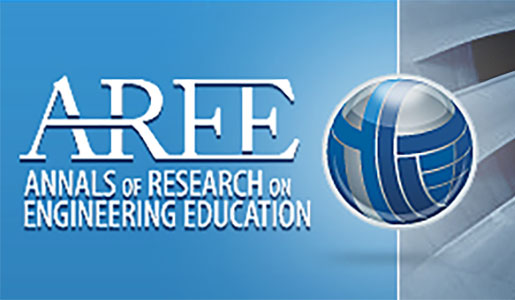Article: State of Qualitative Research in Engineering Education: Meta-Analysis of JEE Articles, 2005-2006
With the wide range of issues facing engineering education, there is a need to ensure that research addressing these issues is of high quality and encompasses the full range of methodologies available to answer these questions. The editor of the Journal of Engineering Education, for example, has called for a renewed emphasis on quality and rigor in both the design of research studies and the reporting of that research (Lohmann, 2005a, 2005b). As one methodological tool, qualitative research can play an important role in answering research questions that cannot be answered using quantitative methods. Although the relevance of qualitative methods to engineering education has been recognized (Olds, Moskal, & Miller, 2005; Turns, Atman, Adam, & Barker, 2005), engineers are more familiar with quantitative approaches and may not be aware of the methodological possibilities that qualitative research approaches have to offer.
We therefore set out to examine the practice of qualitative research as reported in the Journal of Engineering Education, in order to answer the research questions: What research questions, theoretical perspectives, and methods are used by engineering education researchers who make reference to qualitative research in their work? And how are the authors’ theoretical and methodological choices made explicit in these research articles? Our investigation is situated within the broad context of qualitative research, especially as described by Denzin and Lincoln (2005) and Crotty (2003). Denzin and Lincoln describe qualitative research as “a situated activity that locates the observer in the world. It consists of a set of interpretive, material practices that make the world visible (p.3).” Crotty emphasizes the role of epistemology and theoretical perspective as an essential part of qualitative research design. Thus, we examine qualitative research as not just a set of methods or procedures to follow, but as a methodological approach that links research questions to ways of knowing. Further, we emphasize that methods must be consistent with one’s epistemological perspective.
We conducted our work by examining qualitative research articles published in JEE in 2005 and 2006. All 48 articles published in those two years were read in their entirety and the following items were identified: 1) keywords in the title that would suggest whether it was a quantitative or qualitative article, 2) the purpose statement, 3) research questions, 4) type of data collected (quantitative, qualitative, or mixed), 5) data collection methods, and 6) data analysis methods. Of the original 48 articles, 9 were identified as qualitative and were further characterized as to their use of literature references for the methods that were used and the theoretical perspective (either explicitly stated or implied).
Of the nine qualitative articles, only four demonstrated informed use of methods and epistemological consistency. The lack of epistemological consistency was exemplified in several ways. For example, one article claimed a phenomenographic perspective, but data collection consisted of an online survey distributed to over 1100 students, which limited the rich, contextual understanding that could be achieved in a phenomenographical study. Even those articles which were methodologically sound showed some inconsistencies. For example, while one article did show consistency between its social constructionist perspective and the use of discourse analysis, others did not, such as the use of the constant comparative method for what was described as a phenomenological study requiring analysis both at the individual and collective levels.
Our results show that very few qualitative articles are being published in JEE, and there are even fewer which are epistemologically consistent. We call on engineering education researchers to design their qualitative studies with careful attention to the overall research design, thinking carefully about the links among research questions, epistemology, and methodology. In this way, we can answer the full range of questions that must be answered in order to improve and enhance engineering education practice.
Crotty, M. (2003). The foundations of social research. Thousand Oaks, CA: Sage Publications.
Denzin, N., & Lincoln, Y. (2005). Introduction: The discipline and practice of qualitative research. In N. Denzin & Y. Lincoln (Eds.), The Sage handbook of qualitative research, 3rd edition (pp. 1-32). Thousand Oaks, CA: Sage Publications.
Lohmann, J. R. (2005a). Building a community of scholars: The role of the Journal of Engineering Education as a research journal. Journal of Engineering Education, 94(1), 1-6.
Lohmann, J. R. (2005b). The path forward: 2005-2010. Journal of Engineering Education, 94(3), 281-281.
Olds, B. M., Moskal, B. M., & Miller, R. L. (2005). Assessment in engineering education: Evolution, approaches and collaborations. Journal of Engineering Education, 94(1), 13-25.
Turns, J., Atman, C. J., Adam, R. S., & Barker, T. (2005). Research on engineering student knowing: Trends and opportunities. Journal of Engineering Education, 94(1), 27-40.
Author:
Article Link:

